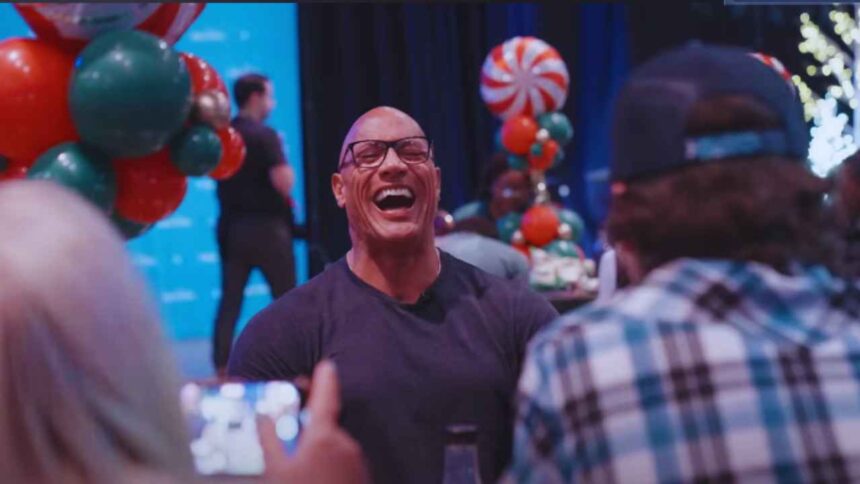The Rock’s unexpected use of profanity in his promo on the March 15, 2024, episode of WWE SmackDown stirred up a storm of controversy across social media platforms. As a charismatic figure revered for his verbal prowess and larger-than-life personality, The Rock’s choice of language shocked and polarized fans and pundits alike.
The explicit message directed at Cody Rhodes, a fellow WWE superstar, added fuel to an already intense rivalry between the two. While trash-talking and heated exchanges are common in professional wrestling storylines, The Rock’s uncharacteristically explicit language pushed the boundaries of what viewers expected from the PG-rated programming.
The incident sparked debates among fans about the appropriateness of such language in WWE programming, particularly considering the diverse audience, including children and families. Some defended The Rock’s use of profanity as a deliberate tactic to inject realism and intensity into the storyline, while others criticized it as unnecessary and disrespectful.
.@TheRock with another excellent promo leading up to #WWE #Wrestlemania 40. pic.twitter.com/YoucFMf4ys
— Aaron Rift of NoDQ.com (@aaronrift) March 15, 2024
Overall, The Rock’s controversial promo left a lasting impact on the wrestling community, highlighting the fine line between entertaining storytelling and crossing the boundaries of taste and decency. As tensions escalate between The Rock and Cody Rhodes, fans eagerly anticipate the next chapter in their heated feud, uncertain of what twists and turns await on the road to WrestleMania.
However, as the dust settled from The Rock’s verbal onslaught, whispers emerged backstage within WWE, suggesting discontent among some talents. Aaron Varble of SEScoops.com reported on the brewing tension, shedding light on a memo sent out by WWE higher-ups, including President Nick Khan, Paul “Triple H” Levesque, and Dan Ventrelle. The memo reiterated the importance of adhering to PG guidelines not only on television but also on social media platforms.
What fueled the discontent among WWE talents wasn’t just The Rock’s colorful language but rather the perceived double standard at play. While The Rock seemingly enjoyed carte blanche to unleash profanity-laden promos on social media, other wrestlers found themselves restricted by PG constraints. Varble’s report highlighted the frustration brewing backstage, with talents questioning why The Rock appeared exempt from the same rules binding the rest of the roster.
Quoting anonymous sources, Varble delved into the sentiments echoing throughout the locker room. The underlying sentiment was one of equality—shouldn’t every WWE talent be held to the same standards, regardless of their stature or outside endeavors? The notion that The Rock, despite his status as a Hollywood megastar, could freely utilize profanity to enhance his persona while others remained shackled by PG restrictions raised eyebrows and ignited debate.
In the realm of professional wrestling, where authenticity and character portrayal are paramount, the discrepancy in standards prompted introspection among talents. The Rock’s ability to leverage profanity to amplify his character’s impact while others were seemingly handcuffed by PG guidelines raised valid questions about fairness and consistency within WWE’s promotional landscape.
As the wrestling world grapples with this controversy, the discourse surrounding The Rock’s social media promos underscores deeper issues of equity and creative freedom within WWE. Whether this dissent leads to tangible changes in WWE’s approach to social media remains to be seen, but one thing is certain—The Rock’s words have sparked a conversation that reverberates far beyond the squared circle.




